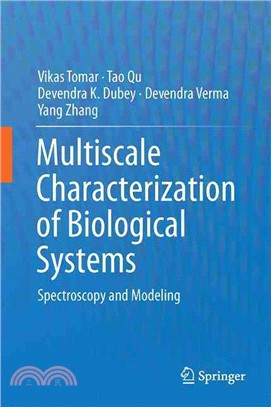Vikas Tomar is an Associate Professor at Purdue University-West Lafayette. His research focuses on understanding how interfaces contribute to failure of complex materials with a specific emphasis on microstructural issues. He has developed three different multiscale modeling methods and a new experimental scheme called nanomechanical Raman spectroscopy. Dr. Tomar has been a recipient of multiple research awards, including the inaugural Material Science and Engineering-C Young Researcher award. He is Editor-in-Chief of the International Journal of Experimental and Computation Biomechanics and is an Associate Editor of the Journal of Engineering Materials and Technology. He is an associate fellow of AIAA.
Devendra Dubey is an Assistant Professor in Mechanical Engineering Department at the Indian Institute of Technology Delhi, India. He received his Ph.D. from Purdue University, Indiana, USA; MS in mechanical engineering from University of Notre Dame, Indiana, USA; and Bachelor’s degree from Indian Institute of Technology Bombay, Mumbai, India. Dr. Dubey works in the general area of computational mechanics at multiple length scales with a focus on understanding interfacial interactions and structure-property. He has previously worked on nano
mechanics of polymer-ceramic type collagen-hydroxyapatite biomaterials and his current research involves nanomechanics of brittle of bone disease, impact mitigation of ballistic structures, biomechanics and bio-tribology of knee and hip joints, mechanical reliability of solar cells, and blast injury mechanics of human body.
Yang Zhang is currently a doctoral student in the School of Aeronautics and Astronautics at Purdue University working with Dr. Vikas Tomar. His Ph.D. work is focused on characterization of high temperature crack tip plasticity and size effect in nickel based super alloy using nanomechanical Raman spectroscopy and high temperature indentation. Yang graduated from the University of Science and Technology of China in June 2009 with a Bachelor’s degree in mechanical engineering. He received his Master’s degree in mechanical engineering from the University of Science and Technology of China in June 2012. He has received a Pan-Deng Scholarship in Mechanics from the Chinese Academy of Sciences and a NSF Fellowship for the Summer Institute Workshop on Extreme Resolution Bioimaging Technologies during his graduate study.
Devendra Verma is currently a doctoral student in the School of Aeronautics and Astronautics at Purdue University working with Dr. Vikas Tomar. His Ph.D. work is focused on understanding the interfacial damage mechanics of metallic and biomimetic materials during impact loading. Verma graduated from the Indian Institute of Technology, Kanpur in May 2011 with a Bachelor’s in Aerospace Engineering. He received his Master’s from Purdue
's School of AAE in December 2012. He has received several awards, including the ASME AMD Haythornthwaite Travel Award, the College of Engineering Outstanding Service Award, the WCCM-World Congress on Computational Mechanics Conference Travel Award, and the Graduate Student Excellence Award during his graduate study.
Tao Qu is a doctoral student in Aeronautics and Astronautics Engineering at Purdue University–West Lafayette. His research focuses on understanding how interfaces contribute to failure of composite/biomimetic materials from atomistic- to continuum-level. He has developed the nanomechanics-based computational framework for modeling interface deformation as well as interface strength with atomistic computational method and finite element method. Tao Qu’s work has been published in Materials Science and Engineering: C, MRS Bulletin, and Acta biomaterialia, etc. He
received the National Science Foundation Fellowship for a workshop on bioimaging technologies in 2013.
























